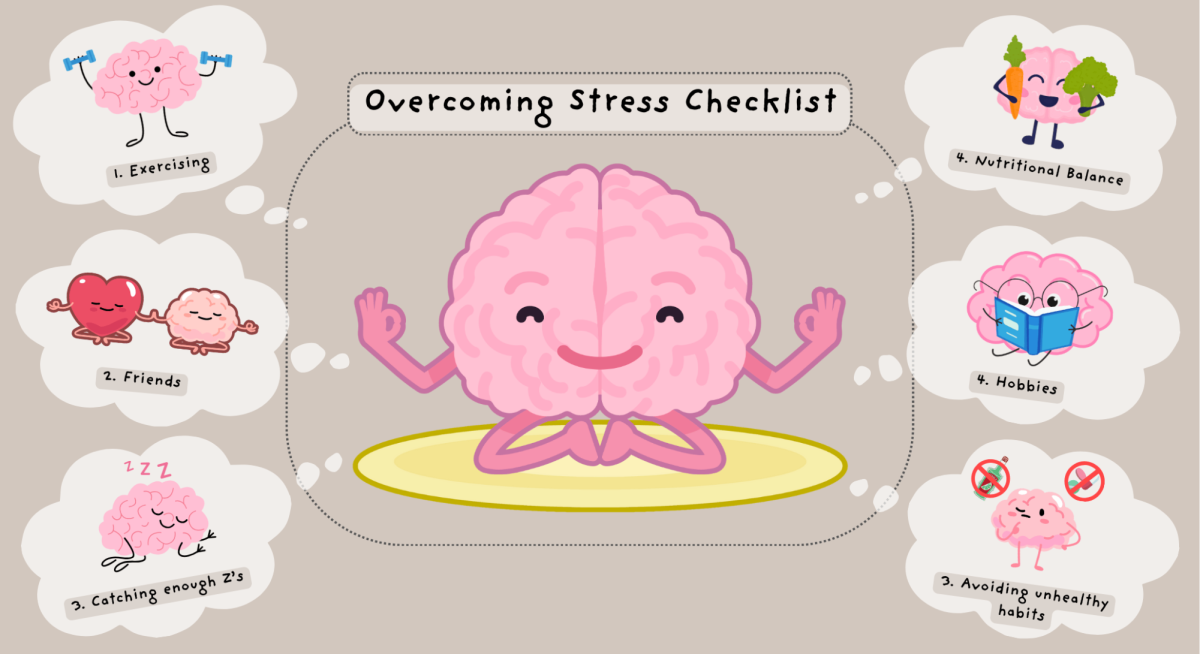The semester begins, and with it the old familiar cycle of classes, activities and campus responsibilities. Amid these numerous expectations, however, it is easy for students to forget the most essential ingredient for success at UW-Whitewater: mental health.
Maintaining mental health isn’t necessarily something that requires dramatic change. Instead, it’s the sum of various tiny, considered decisions—short pauses between commitments, moments of mindfulness or writing things down before bed—that together collectively contribute to one’s life over the course of the semester.
They are not habits, but rather self-aware ways of slowing down, recommitting and re-engaging within the context of college life’s pressures.
For senior Jacob Peacy, those first steps start with planning.
“Getting homework out of the way in the morning and being prepared during the week makes it not seem so overwhelming,” Peacy said. “If you’re really going to do it, you prioritize and block out the time.”
Senior Ashley Green seconded the importance of staying organized.
“I never used a planner in high school, but it’s my lifesaver now,” Green said. “It’s helped me stay on top of homework, my work schedule and squeezing in a social life.”
Daily routines also set the tone for the day. Peacy keeps it low-key.
“Roll out of bed, brush teeth and breakfast—it gets me ready for the day,” Peacy said.
Green acknowledged that she doesn’t have a regular morning regimen, but still restarts in other ways.
“Primarily, I just wake up, get dressed and go to class or work,” she said. “But I do think the way you organize your mornings does make your day feel crazier or more relaxed.”
Exercise has also proved to be a valuable tool.
“Working out and listening to music—just moving forward—always helps,” Peacy said.
A quick departure from the screen or even a short walk outside can recharge his concentration. Green credited how easy it is to walk around UW-Whitewater’s campus as a benefit.
“Because campus is so walkable, I like to take time in my day to get outside,” Green said. “Whether it’s picking something up to eat, taking a walk to work or heading to class, I make it a point to.”
Both students also made maintaining good relationships a priority.
“Chatting with friends and bouncing ideas off other people keeps me energized,” Peacy said. “It’s better to be in your face than on the web—you build better relationships that way.”
Green agreed, commenting on the challenges, including finding it “difficult to keep up with friends and family, so I attempt to squeeze out as much time as possible to at least talk at some point in the week, if just by text message. Occasionally, if my friends happen to be on campus, I will run into them during lunch or we’ll go out to something.”
Reflection completes their mental health tactics. For Peacy, that means acknowledging small victories.
“Getting away from the computer, taking a quick walk or stepping outside gets my mind clear,” he said. “Those small victories give me the energy for larger projects.”
Green also makes time for “me time.”
“Taking a hot shower gets my mind and body cleared,” Green said. “Other times, my friends and I began watching a show on Sunday nights—it became our thing, and it cleared my head after a long week and made me closer to them.”
When asked for advice for their peers, both seniors had something positive to say.
“Enjoy life—it’s short,” Peacy said. “Better to take it day by day than worry about everything in the long term.”
Green added that students should “get involved, but don’t overprogram yourself. Discover the things that bring you joy and be committed to them. It’s easy to jump into everything at first, but you have to leave space for breathing.”
Lastly, becoming mentally healthy is not just about surviving the semester; it’s about developing habits that enable students to flourish and thrive. By making proactive decisions, from preparing to study in advance to building time for connection and reflection, Warhawk community members can achieve balance amidst the busiest weeks.
This year, let us not only value excelling academically but also promise to take care of ourselves and of each other, building mental wellness into a central value to UW-Whitewater’s community.



Stephan Reyes • Sep 8, 2025 at 10:36 pm
World Rehabilitate Clinic has made a great impact treating and providing complete cure for patients with chronic illnesses.